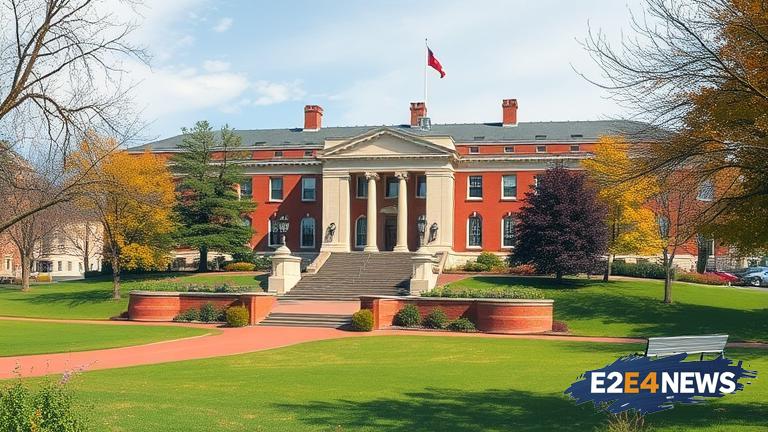The University of Wisconsin has made a significant decision to dissolve its Diversity, Equity, and Inclusion (DEI) office, a move that has been met with both praise and criticism. This decision comes amid a growing national pushback against DEI initiatives, with many arguing that they have become too politicized and divisive. The university’s decision is seen as a response to concerns that DEI offices have overstepped their bounds and are now focusing on ideological agendas rather than promoting true diversity and inclusion. The DEI office at the University of Wisconsin was established to promote diversity and inclusion on campus, but it has been criticized for its handling of certain issues, including its response to free speech controversies. The university’s administration has stated that the decision to dissolve the DEI office is part of a larger effort to re-evaluate and streamline its administrative structure. The move is expected to save the university money and reduce bureaucracy. However, some students and faculty members have expressed concern that the decision will harm the university’s commitment to diversity and inclusion. They argue that the DEI office played a crucial role in promoting diversity and inclusion on campus and that its dissolution will create a void that will be difficult to fill. Despite these concerns, the university’s administration has stated that it remains committed to promoting diversity and inclusion and will continue to support these efforts through other means. The decision to dissolve the DEI office is part of a larger national trend, with several other universities and institutions also re-evaluating their DEI initiatives. This trend is driven in part by concerns that DEI offices have become too politicized and are now focusing on ideological agendas rather than promoting true diversity and inclusion. Some critics argue that DEI offices have become too focused on promoting certain ideologies, such as critical race theory, and have lost sight of their original mission to promote diversity and inclusion. The national pushback against DEI initiatives is also driven by concerns about free speech and academic freedom. Some argue that DEI offices have been used to suppress free speech and stifle debate on campus, and that their dissolution is necessary to protect these fundamental values. The University of Wisconsin’s decision to dissolve its DEI office is a significant development in this national trend, and it will be interesting to see how other universities and institutions respond to these concerns. The decision is also likely to have implications for the broader conversation about diversity and inclusion in higher education. As the national pushback against DEI initiatives continues to grow, it is likely that we will see more universities and institutions re-evaluating their DEI offices and initiatives. The University of Wisconsin’s decision to dissolve its DEI office is a significant step in this direction, and it will be important to monitor how this decision plays out in the coming months and years. The university’s administration has stated that it will continue to support diversity and inclusion efforts, but it remains to be seen how this will be achieved without a dedicated DEI office. The decision to dissolve the DEI office has also raised questions about the role of diversity and inclusion initiatives in higher education. Some argue that these initiatives are essential for promoting diversity and inclusion on campus, while others argue that they have become too politicized and are no longer effective. The University of Wisconsin’s decision to dissolve its DEI office is a significant development in this debate, and it will be interesting to see how other universities and institutions respond to these concerns.
